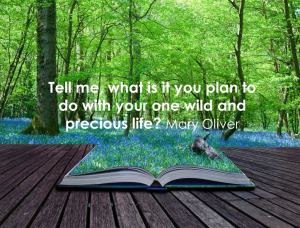In February last year I embarked on a journey of study for a PhD in Education, studying mindfulness and self-compassion in schools. My quest has led me to ask questions about the very nature of education… when we send our kids to school, what is it that we are hoping for? The preoccupation with ‘effectiveness’ of our education system (and there are those who ask, “effective for what?“) has obscured the bigger questions such as what it is that we hope for our education system to achieve – what’s important to society, and what’s important to the pupils themselves? Our schools test pupils to the point of overload, such that teachers are leaving the profession in droves and pupils are suffering increasingly from anxiety and depression, among other disorders.
mindfulness and self-compassion in schools. My quest has led me to ask questions about the very nature of education… when we send our kids to school, what is it that we are hoping for? The preoccupation with ‘effectiveness’ of our education system (and there are those who ask, “effective for what?“) has obscured the bigger questions such as what it is that we hope for our education system to achieve – what’s important to society, and what’s important to the pupils themselves? Our schools test pupils to the point of overload, such that teachers are leaving the profession in droves and pupils are suffering increasingly from anxiety and depression, among other disorders.
I live with 3 teenagers and I’m only too painfully aware that much of what they learn in school will most likely never be of any use to them in their lifetime. Learning the anatomy of a frog via dissection will – I suggest – be of no use to my 15-year-old son who wishes to become a quantum physicist.
A YouTube video by Dave Brown called ‘Don’t Stay in School’, brought to my attention by my 17-year-old son, captures the irrelevance to pupils of much of what is taught in schools. The video has had over 15 million views – this suggests there’s a message here that resonates with many!
“Could we discuss domestic abuse and get the facts
or how to help my depressed friend with their mental state?”
Ummm… no but learn mental maths
because, “You won’t have a calculator with you every day!”
Schools teach simultaneous equations, how to play the recorder and tongue taste maps (does anyone actually care which part of the tongue is responsible for recording sweet tastes, and which is responsible for salty and sour?) but rarely are kids taught how to hold their thoughts in a balanced awareness or how they might direct kindness towards difficult inner-experience. These are skills that can be used every day, in pretty much every moment… it doesn’t get much more useful than that!
If aliens from outer-space are watching humankind with awareness of our current priorities and of our deep divisions and suffering, they must quite justifiably think that we’re utterly insane!
 As part of my PhD, I’ve created an adolescent version of the Mindfulness Based Living Course – it’s called ‘Mindfulness Based Living Course – Young Adults (MBLC-YA)’. I had been teaching mindfulness in some of Scotland’s more forward-thinking schools and the curriculum that I was delivering was well-received, but there was a notable absence of the compassion element and an emphasis on training the mind rather than getting in touch with the deeper wisdom of the body – most especially the heart.
As part of my PhD, I’ve created an adolescent version of the Mindfulness Based Living Course – it’s called ‘Mindfulness Based Living Course – Young Adults (MBLC-YA)’. I had been teaching mindfulness in some of Scotland’s more forward-thinking schools and the curriculum that I was delivering was well-received, but there was a notable absence of the compassion element and an emphasis on training the mind rather than getting in touch with the deeper wisdom of the body – most especially the heart.
I recognised, of course, that talking to teens (particularly early teens) about the deep wisdom of the body would likely result in sniggers and yawns, and so the MBLC-YA approaches kindness and compassion in a way that I think all of us can approach it – with humour, gentleness and a real recognition that our ability to grow kindness can help to make the world a better place. Teens really get this, and if the sessions engage them and meet them where they’re at, then their natural passion and enthusiasm to create real change in the world can be harnessed.
The MBLC-YA is the only secondary-school mindfulness curriculum in the UK, at the present time, that specifically aims to increase pupils’ levels of self-compassion as well as mindfulness. In research-terms, teaching self-compassion in schools is promising in the potential benefits it may confer, but it’s very, very new. Teaching self-compassion in schools and other youth organisations is a radical act of creating the world we want to see… join us at the cutting-edge!
-Heather Grace Bond

